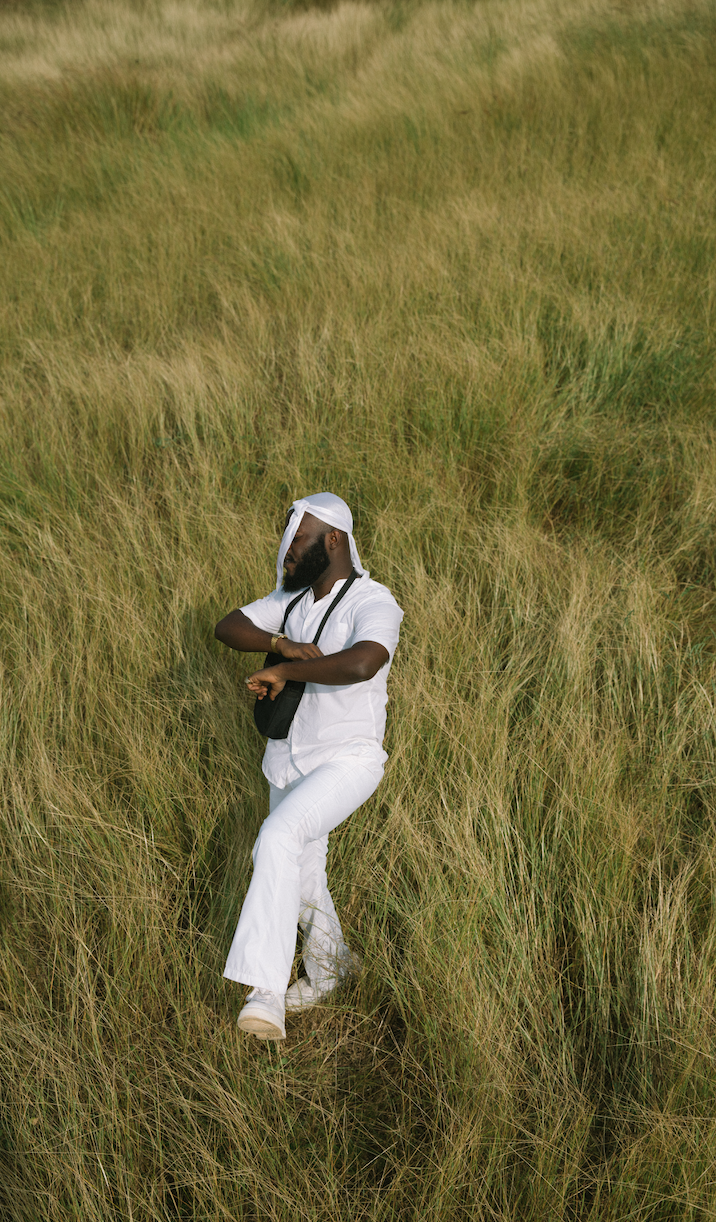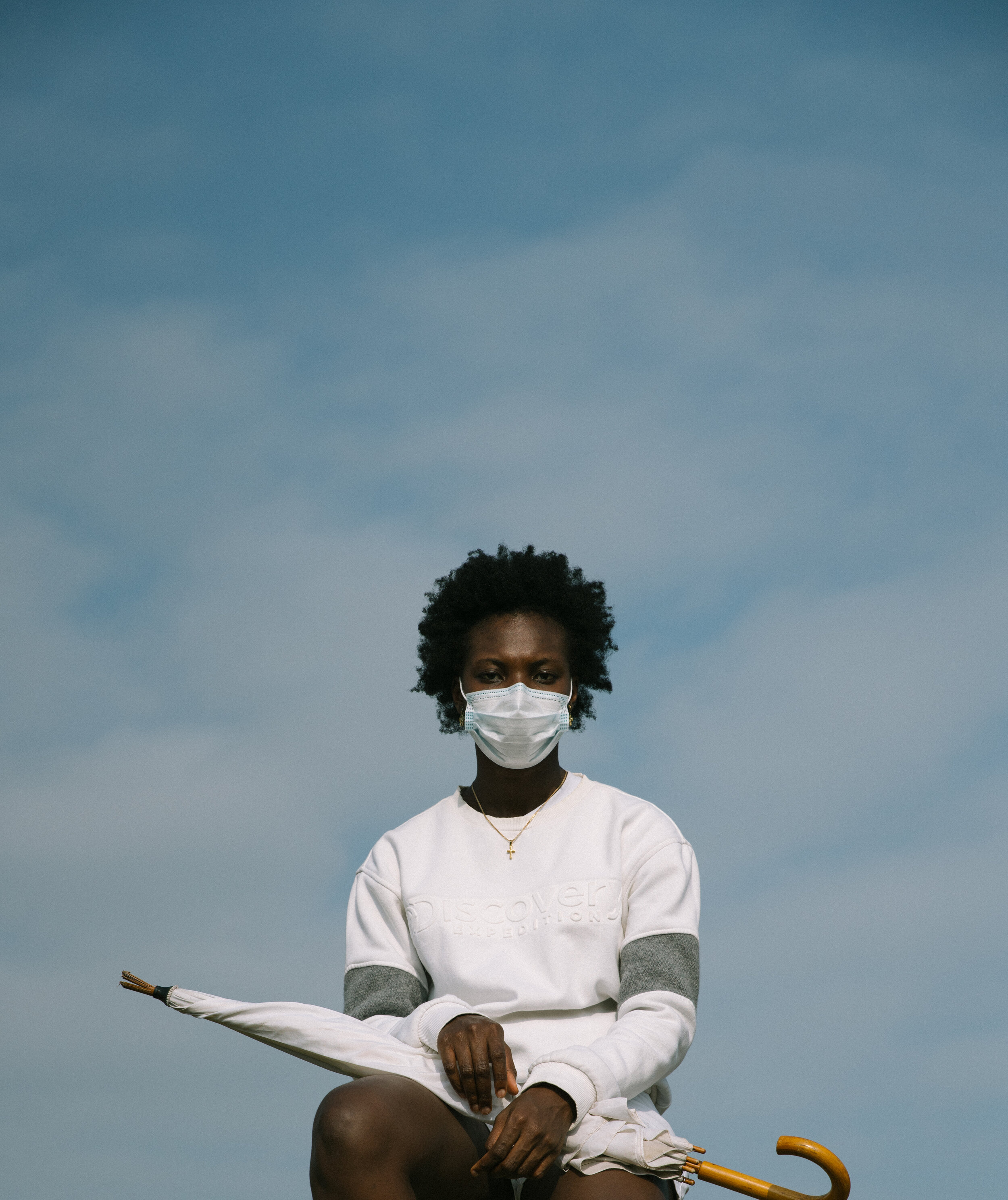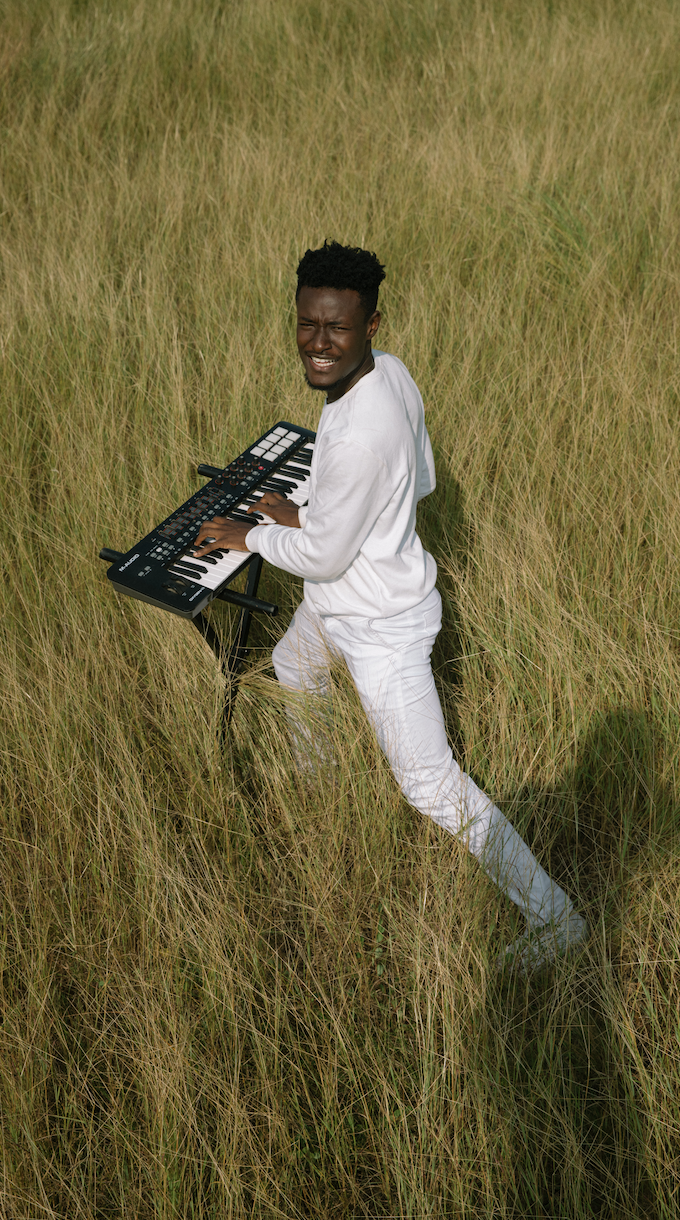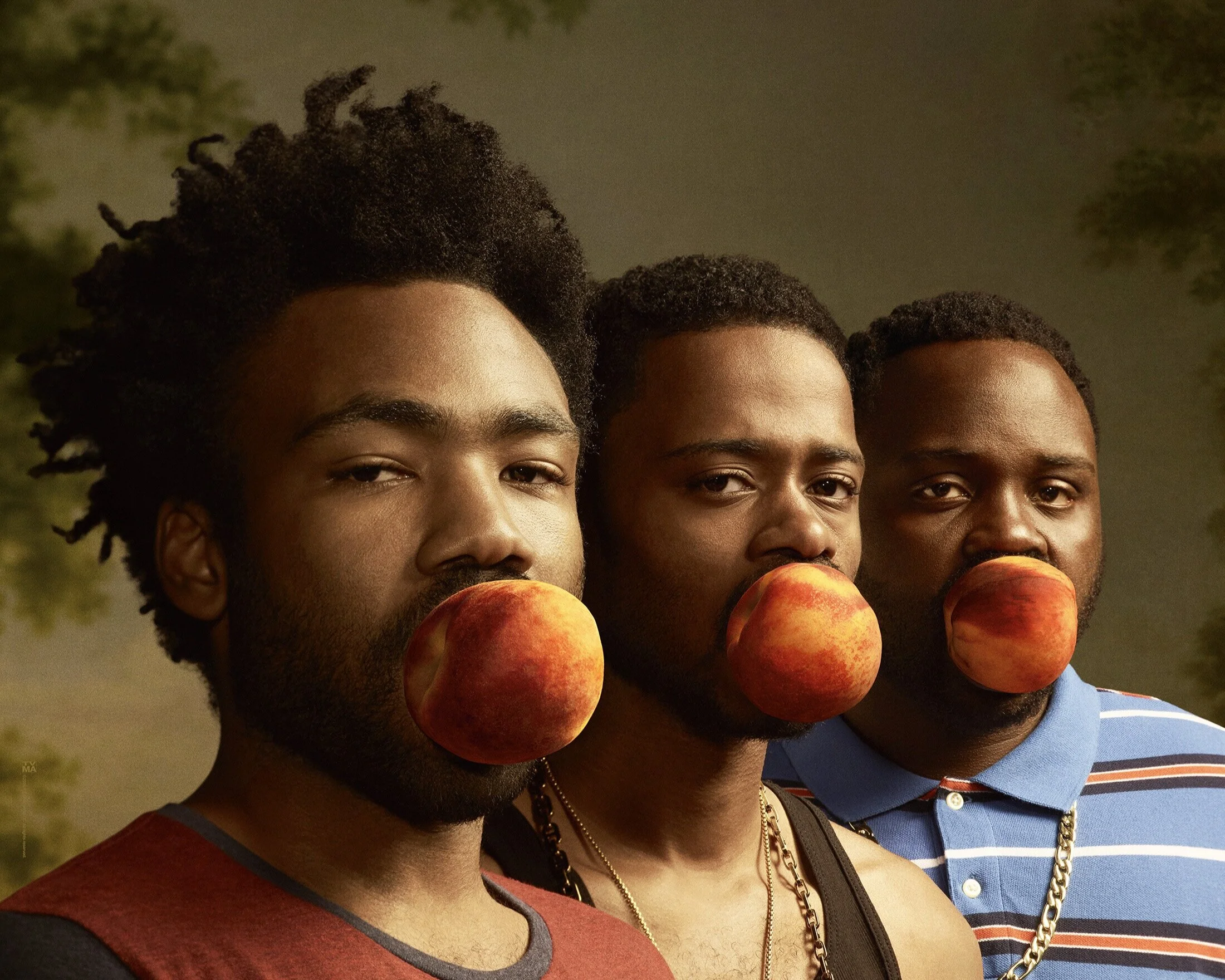The Story of SuperJazzClub
/Illustration by Tamara Ibrahim — @timmystired
Purity is defined as freedom from anything that debases, contaminates or pollutes. It’s also the theme of the conversation I had with Ghanaian Collective: SuperJazzClub, as Summer drew into Autumn here in London. SuperJazzClub are a group of nine multi-talented individuals with skills ranging from vocals and production to DJ’ing, film-making and much more. Of the nine, 6 are also individual artists and rather than navigate the creative scene alone, they decided to come together back in early 2018. But it was 2019 where they debuted their first song together: Couple Black Kids — an anthemic and confident debut which captures the essence of what it means to be Young and Black.
2020 has seen SuperJazzClub collaborate with artists outside the collective on their ethereal: Bordeaux — a song which doesn’t follow conventional composition structure, but this doesn’t detract from the dreamy essence of the song.
Fast-forward to September 2020 when the team released their first project in the form of EP: For All The Good Times. Punctuated by voice note interludes, the EP tells the story (millennials and young adults know too well) of not really knowing where life is going but at the end, coming to a realisation that life is there to be lived and not worried about. If you’re too busy worrying, you’re missing out on life happening all around you.
Outside of their music, their Instagram is a window into what it feels like to create something special with your friends; with an aesthetically-pleasing curation style.
I wanted to speak to the group because there’s this intangible special-ness about them and as we head further and further into the ‘20s, exactly what this is will become clear and noticed by many people beyond their native Ghana.
Throughout our conversation, I’m reminded of the pure reasons people come together to create music — mainly to feel free from the restrictions other things in life place on us. We’ll be talking origins, influences, getting to know the individuals behind SuperJazz and just overall, share some of their world.
Read more as I chat to Ansah Live, BiQo, Seyyoh, Tano Jackson, Øbed, Joey Turks, Anthony and Oliver (minus Gloria Dennis).
L—R: Tano Jackson, Seyyoh and Joey Turks
Image Credit: @friday_boi
The Story so far.
We started this collective to create the things that we love.
— Ansah Live
Starting the conversation off, I wanted to know more about the genesis of the collective and as producer and rapper Ansah Live explains, starting the collective was a way for these individual talents to come together as one:
SuperJazzClub is a collective of creative people. Songwriters, singers, producers, filmmakers, fashion people. The creative side that we’ve shown so far is the music aspect because that seems to be the centre of our operations right now. We started the collective in early 2018; that’s when we all came together to start making music.
It would have been easy to compare SuperJazzClub to other collectives namely Odd Future, The Internet etc, but on the subject of being influenced by such, Ansah goes on to say:
From the jump [SJC] wasn’t really influenced by other collectives, it was mostly influenced by the fact that we were just creative people and we wanted to try to start doing that together as friends. We used to hang out a lot and that’s how the idea came about to work together. But over time we’ve certainly drawn influences from various other music collectives. Past bands etc.
When starting something, it’s important to think about the goals you have for it. It’s clear that every move made by SJC is very intentional. When asked about expectations they had at the beginning, Ansah answers:
We started this collective to create the things that we love. If it was music: create the type of music that we love because we felt like there were other young musicians like us around who were not free to express themselves in terms of creating what they actually loved. And most people were being forced to chase a certain path; it was time somebody did something to inspire everybody else to actually create what they wanted to create. When we started SuperJazzClub, we knew that the sounds we created were not necessarily popular where we are based [Accra]; but that was the whole aim: to create something that is not controlled by what was around us. I feel like with us, the expectations and what we’re trying to build, we’re on our way. And looking at the people we are drawing in with the music, I can say that we’ve done a pretty good job over the last 1.5 years. And there’s more to come.
Speaking on their sound, vocalist: BiQo jumps in:
I think for me, generally, the sound keeps evolving and we keep realising different spaces that we can create [in]. Sonically, I don’t think we have exhausted what we have to offer.
Speaking of sounds, the pressure to create something mainstream-friendly has been the stuff of nightmares for many artists over time. But how has it affected SuperJazz? Oliver, working behind the scenes at SJC, explains:
The pressure to create something which is going to be mainstream is always there. But I don’t think that gets us [down] because we kind of create what we feel. If we are creating a sound that at the moment is kind of mainstream-ish and it’s what’s coming out of what we feel, then fine. But I think in our creation process, we don’t plan to make mainstream songs or “alternative” songs. I think we are creating alternative songs because that’s how we create. That’s what comes out of us when we want to create and that comes out as the sound that SJC produces.
In truth, SuperJazzClub are creating whatever they like and however it turns out isn’t something they worry about; they’re creating music that best represents them. The Club have been labelled as Alternative and I asked them how they felt about it. Oliver answers:
I think we have this argument in the studio a lot. Like what is Alternative itself? The sound that we create may be alternative [in Ghana]. But when it is placed in the West, it’s not too far away from what’s being done and I think in the Ghanaian space, it’s quite alternative; people may not appreciate it here. But we are creating music for the World and I think that’s what’s important. Alternative is just a term to label that.
As mentioned earlier, of the 9 members of SJC, 6 of them are also individual artists and undoubtedly will have their own way of doing things when making solo music. But on coming together to create, BiQo breaks it down:
I think the creative processes vary with each song. But the main thing is, we’ll be hanging out and before we know it, we’ve started something. Sometimes it’s premeditated, like we talk about how the song should sound, what the song should talk about or the purpose of the song. But more often than not, we’re just chilling and then we create great music.
With Anthony, also working behind the scenes at SJC, chiming in that: I’ll also say for a fact that there’s always some soda available when we’re creating.
Moving the conversation onto the city where they are based: Accra, Ghana. We talked about what the creative scene is like there. Instagram scrolls will show everyone (and diasporans) living their best lives there each December. But what happens on a day to day basis? Seyyoh, the sole female vocalist of the group shares her opinion:
I think the creative scene is budding, it’s growing from what it used to be in terms of the alternative arts in general. There’s a higher acceptance of people who are not following the crowd or being mainstream. There’s growth in the number of people who want to make music or be different. It’s good to be part of the movement right now.
Akin to this is the live scene in Accra. December is rife with live shows with big Afrobeats’ names but as Ansah explains, that time is probably the most lively throughout the year:
I feel like Accra is a really small place. The [availability of] live music venues makes it even smaller because there are not too many places where you have shows. There are actually no specific venues where you can go and play live music. So usually, artists tend to find their own spaces or go to a restaurant/bar and speak to the team there to use that place as a space to perform their music. I feel like also in Ghana, all the shows are in December, in terms of mainstream artists coming to perform. So during the year, it’s rare to say you’re going for a live show. Quite a few artists do put things together for their fans, though.
VISUALS
So far we’ve been speaking about the music but SuperJazzClub is more than just that.
— Oliver
Making intentional moves with visuals has become something listeners can expect from SuperJazzClub. Earlier this summer they released the Reggae-infused “Cellular” with a light and fun video showing friends having a good time; an insight into what it’s like to create with your friends. Reminiscing about the time it all came together, Oliver and rapper/creative, Tano Jackson share:
Oliver: Cellular was shot immediately after the lockdown period in Ghana. The shoot was planned way before that, but then Corona hit. We organised some friends of ours, the space, logistics, and we shot the video. So far we’ve been speaking about the music but SJC is more than just that. There’s a visual side; we have really good visual people who help us with visual direction. We shot the video ourselves with Tano Jackson heading the team of Directors.
Tano Jackson: We started thinking about [concepts] and I was working with Ansah side by side on it; we just wanted it to be colourful. We called our friends [to be a part of it] and it was a very low budget but we shot it, then a couple of days later it came out.
The video for “Cellular” is lively and upbeat; a complete antithesis of what 2020 has been so far. One moment in the video which stands out shows 5 people standing in a diagonal line with oranges in their hands. Tano went on to share that the Club love to channel people who inspire their music and reveals that the orange moment was in homage to Donald Glover’s Atlanta, where the promo image shows the 3 main characters holding peaches in their mouths.
Atlanta Promo Poster
Speaking more about how he felt about the finished video, Tano says:
Honestly, we’re happy. I’m not always happy with what I do as I always feel I could give 10% more but we actually are happy because there was no budget for it and we’re just happy with the outcome. I guess our next video is gonna be better as we’re improving on everything but, we’re Indie and we’re just doing our thing. If we had a lot of money behind it, it wouldn’t have that feel that it currently has.
Summing up the day, BiQo shares:
For me, I’ll say it was a very good/memorable day. Because that day, my friends who I invited, [came]. It was really great having people that support your music come through for you. I’m always about the end goal and we were trying to shoot the video so whatever we have to do we should do it and get it done.
FOR ALL THE GOOD TIMES
Every person is playing their role on the EP from music writing, aesthetics of the music, mixing, mastering and so that’s what we’re giving to the people. We’re introducing ourselves to the people so that they know our sound.
— Oliver
L—R: Joey Turks, Øbed, Seyyoh, BiQo, Tano Jackson and Ansah Live
At this point in the conversation, we moved on to talk about their latest EP: For All The Good Times and what listeners could expect from it:
Oliver: This particular project wasn’t the one we were planning to put out; we had recorded an LP that we wanted to put out. Then we were having a discussion one day and a suggestion came that we’re probably not yet ready to put out an LP. Basically, we need to introduce our sound to people more before we put out a big project.
Every person is playing their role on the EP from music writing, aesthetics of the music, mixing, mastering and so that’s what we’re giving to the people ourselves. We’re introducing ourselves to the people so that they know our sound.
Anthony: And considering everybody’s expertise, I feel like the project has a song for everyone.
Ansah: I think for this project, we tried to tap into different sound palettes and pockets so there’s a lot of fusion going on. Also around when we made the video for Cellular, we had just seen Guava Island and in the final bit of that movie, there’s a parade where they’re playing this vibrant music with a lot of energy with trumpets etc, so that’s what we took inspiration from (for the last bit of Cellular). [Another song on the project], What You Want is really inspired by Garage music and how fast it goes. [This EP is a] combination of different sounds put together. I don’t know if we’ll make another one like this.
Circling back, I wanted to learn more about whether any of the Collective had consciously thought about the message they were trying to convey to the world as a collective. For the group, it really is about helping to show other creatives that there is space for them even if it feels like there isn’t:
Ansah: I think yeah, we do think about [the message] and basically the core of everything we create is to inspire other people to also create in their own way what they want to create. I feel like a lot of times people can’t be themselves (even outside of being a creator). A lot of times, the world is like “Be Yourself” but when you’re trying to be yourself and it’s a little different to what the majority are doing, everybody is uncomfortable with it. But then again, everybody says be yourself.
So, everything that we create should push you to be yourself and do what you want. If it’s what you love just go ahead and do it. It’s one thing to be on this earth and the next minute you’re gone. So be true to yourself. If you’re a creator, create the things that you love.
Oliver: Whatever we do, we create what we feel. We want to inspire people to create.
BiQo: Initially we had this mantra of defying the stereotype. Like the whole idea that you’re from Africa/Ghana so the sound should be this. The music is a Universal product and it doesn’t matter where you come from, if it’s good it’s good. That’s what we run with as well.
(It’s not just poverty, we’re Kings, we’re Royalty).
DEFINING SUCCESS
Accepting yourself and making art that is true to yourself.
— Seyyoh
Animation by Tamara Ibrahim — @timmystired
As the conversation began to wind down, each member was asked a WFA classic aka:
"How would you define success for SuperJazzClub?”
Ansah: Personally, success to me is being able to inspire somebody to do something positive. If I can do something that influences somebody to take a step in the right direction, that’s success to me and it just makes me happy. Basically inspiring people once they listen to the music to do what they’ve always dreamed of. Money and everything that’s cool but the one thing that really makes me happy is if I’m able to influence people to do something positive.
BiQo: To add to what Ansah said, the success of SJC to me would be when we’re able to inspire the next kid from the neighbourhood. Because, I’m from Odorkor and it’s crazy out here man. Just like how Osibisa was a Global force, if SJC can get to that place where it’s seen like that and we’re in a position to inspire the kids from our neighbourhoods and take care of our families, that’s success for me.
Oliver: Something that gets me really excited is when people reach out to us on our social media and tell us how our music has impacted them. Especially for “Bordeaux” on Twitter, seeing people tweet some of the lyrics. It makes me realise “okay we actually did that, like we made music which influenced someone’s life.” That is always a feeling of success to me. I want SJC to get to the point where people reach out and say “Yo! You guys did that song/project and I can’t thank you enough for that.” That’s that point where I feel like I would be successful.
Anthony: So success for me is having to set a pedestal and be considered the pace-setters for this type of music we’re making in this location. In a few years to come, if someone is inspired by us just like how we’re in this interview and we’re making references to other artists; if somebody could do that with our music then that would be success for me. And yeah there’s the money, cars etc. I’m happy to leave my actual job to do something that is to do with SJC; it gives me that sanity.
Seyyoh: I’m adding onto what everybody has said because I think that all of those things are important. I feel like for us to be able to inspire and influence people to make art and stuff and reach as many people as we can with the music.
Success for me is being true to yourself and creating, no matter what. There are a lot of things around you which can push you to do other things for example the need to survive.
[It’s] accepting yourself and making art that is true to yourself.
Øbed: For me I think the essence of SuperJazz is to unite and to inspire. If we can inspire the next generation, that is the goal. [Sometimes I feel like we’re] creating against a system that is created to oppose you, because money plays a very important role in everything we do in life and in this part of the world, we are at a disadvantage because whatever you create needs to be pushed 10 times as much as anybody who is outside of Africa. So, if against all these odds we can still make what we truly want to make then I think that’s the ultimate goal.
Joey: I just want to say to the upcoming musicians and young ones doing something different from the mainstream. Create whatever you feel.
In Ghana if you do something different, people look at you like well what are you even doing? So SJC should be a group that inspires any other musician to create whatever they want.
Tano: I feel like checking stuff off your checklist. Like anything you do just achieve it you know. We move. Plus, it’s bigger than music, having a voice and being able to [have] impact. That’s it.
It’s clear that SuperJazzClub have great ambitions to both create music which best represents them, but also become a reference point for other young Ghanaians and Africans, brought up in similar situations, to have the confidence to create what they feel.
The truth is, they’re more than just a Couple Black Kids out riding. They’re actively challenging the perception of what it means to be a young person in Ghana.
As 2020 draws to a close, be sure to keep up to date with all things SuperJazz on their socials:








